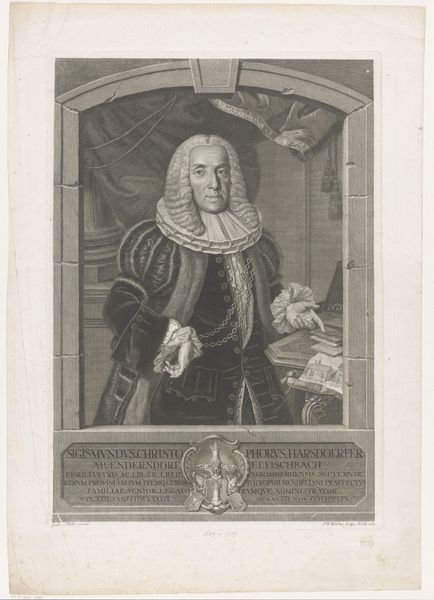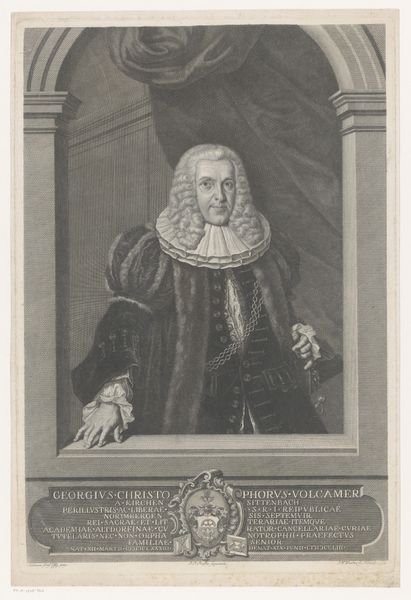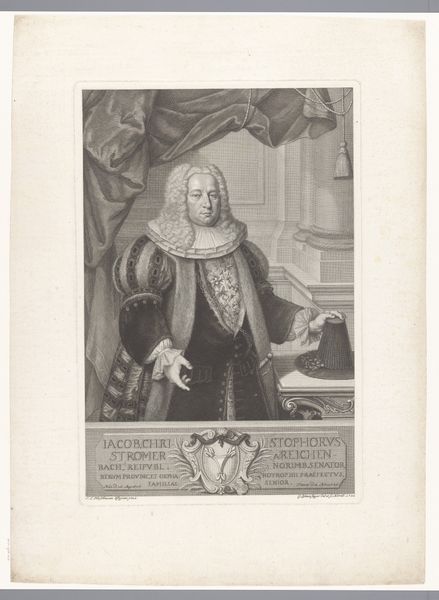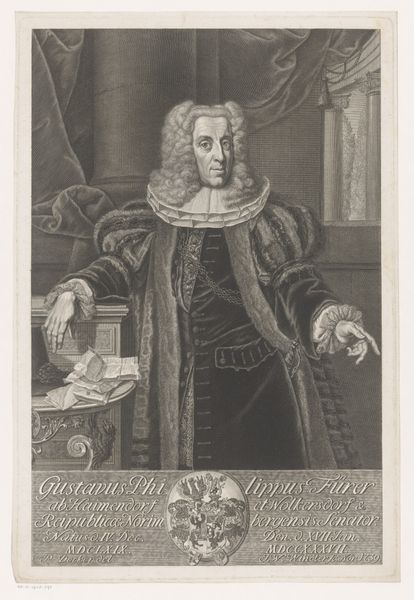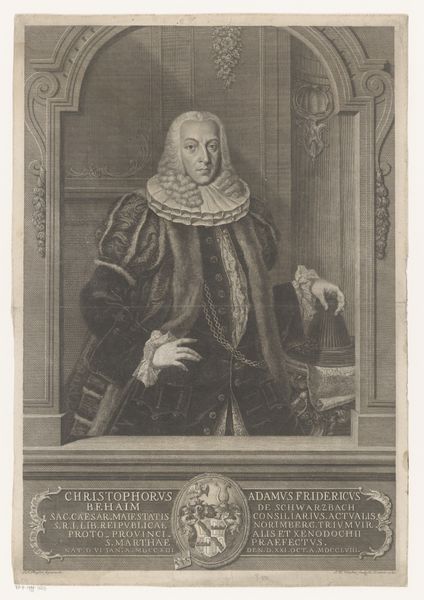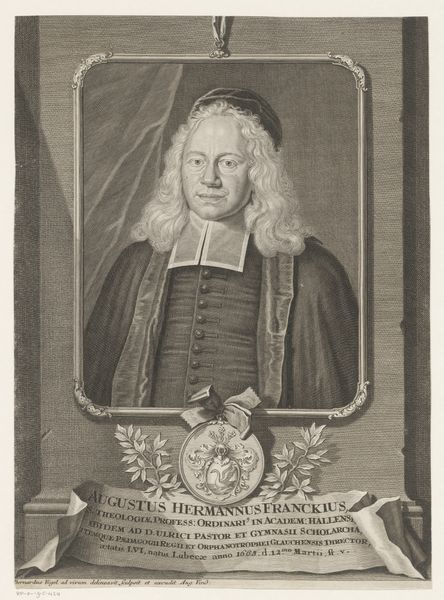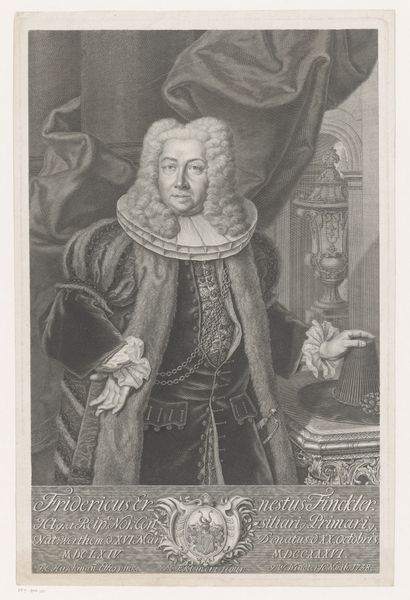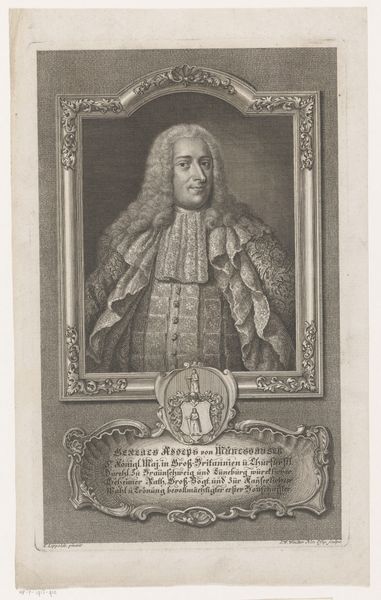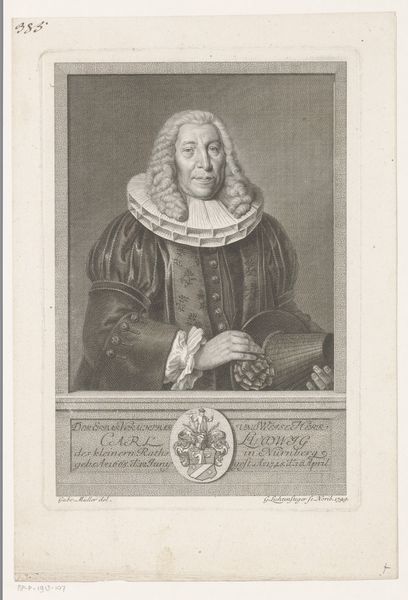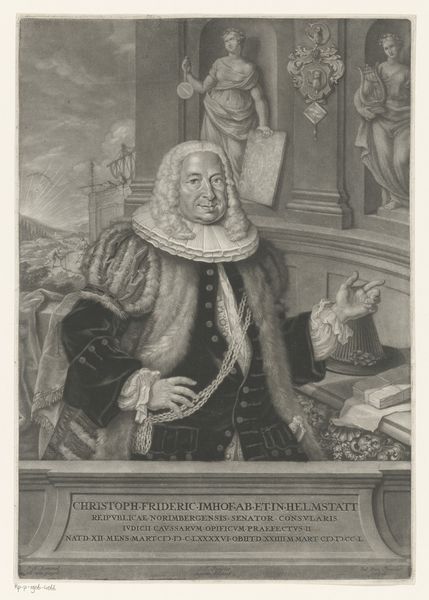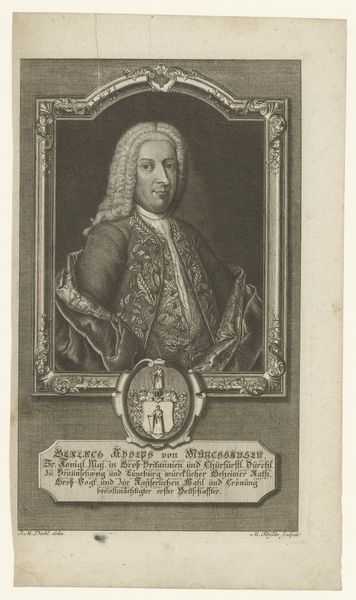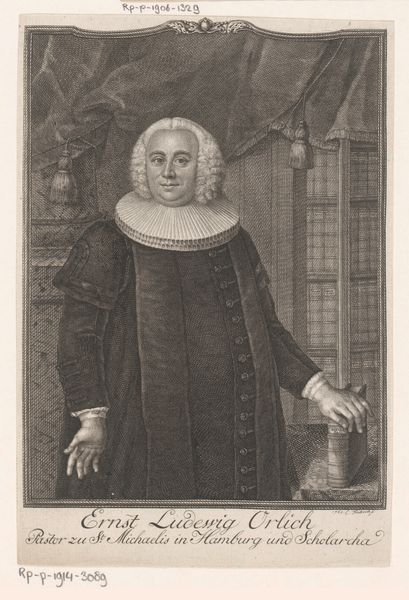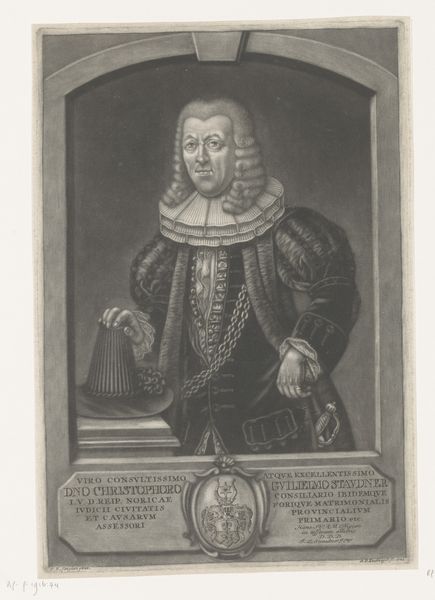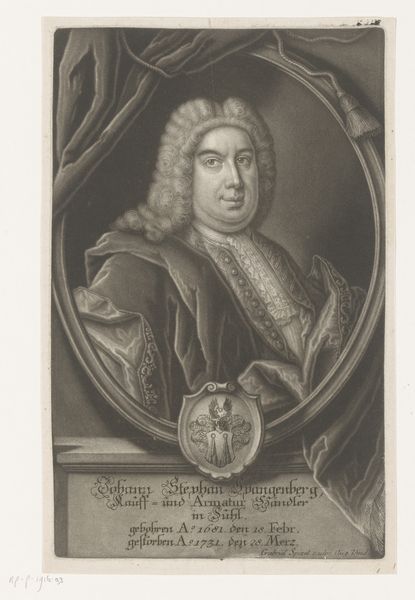
engraving
#
portrait
#
baroque
#
historical photography
#
history-painting
#
engraving
Dimensions: height 427 mm, width 302 mm
Copyright: Rijks Museum: Open Domain
This is an engraving of Baltasar Sebastian Munker, made by Johann Wilhelm Windter in the mid-18th century. As an engraving, it would have been made by incising lines into a metal plate, applying ink, and then pressing paper against the surface to pick up the image. Notice how the crisp lines of the engraving capture the texture of Munker’s elaborate wig and clothing. The density of the marks creates areas of dark and light, giving volume to his figure. Engraving was a skilled, laborious process. But unlike painting, it allowed for multiple identical images to be produced. This was important for disseminating portraits like this one, which served to project an image of power and status. The fact that this portrait exists as a print, rather than a unique painting, speaks volumes about the changing modes of production and consumption in the 1700s. So, when you look at this engraving, consider not just the image itself, but also the materials and processes that brought it into being, and the social context in which it was made.
Comments
No comments
Be the first to comment and join the conversation on the ultimate creative platform.
